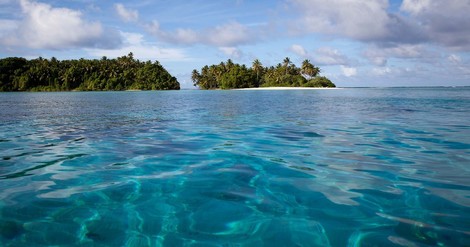Your podcast discovery platform
Curious minds select the most fascinating podcasts from around the world. Discover hand-piqd audio recommendations on your favorite topics.

piqer for: Climate and Environment Globalization and politics Deep Dives
Annie Hylton is an international investigative journalist from Canada. She writes about gender, immigration, human rights, and conflict, and has worked in East Africa, the Middle East, Central America, and elsewhere. She teaches journalism at Sciences Po in Paris and was a former international lawyer focusing on situations of conflict. Hylton is a graduate of Columbia University’s Stabile Center for Investigative Journalism and also holds a J.D. and Master of Laws in international humanitarian law.
Marshall Island Residents Cope With Climate Change In The World’s Forgotten Nuclear Ground Zero
Until her death in August 2017, journalist Kim Wall contributed to a three-part multimedia series, along with Coleen Jose and Jan Hendrik Hinzel, on the impact of climate change in the Marshall Islands, where, following World War II, the U.S. conducted atomic tests.
As the world confronts a migrant crisis, due in part to climate change, the series illustrates how many people have no choice but to flee their homelands to survive.
Enewetak Atoll is now home to a leaking nuclear waste site, where “sea levels are rising, inundation from typhoons is worsening, and weather patterns are shifting to favor prolonged drought.”
The first part of the series follows a family returning to live in their contaminated home of Enewetak. Brooke, an American who was teaching in Enewetak, met her now-husband, Mores, an Island chief, before they had two boys and left for Majuro, the capital. Mores, now a chief, has an entitlement to land in Enewetak, and Brooke wanted to complete her Ph.D. there. So they returned.
Brooke grapples with her decision, to bring her children home so they can learn about their identity and live on their ancestral land. But, there’s a catch: they live next to the world’s largest nuclear waste site, where the U.S. conducted 43 nuclear tests and left behind a legacy of what the residents call “the poison.” Much of the land, the piece notes, is laced with radioactive plutonium, which is one of the most toxic substances on earth.
The piece weaves in the situation of residents, the majority of whom have left. Those who have stayed have no food sources and rely on dwindling food rations.
“I often wonder why nobody knows about Enewetak. Is it just because it's so remote that the United States did such a good job of keeping things quiet here?”
The piece ends with an Epilogue, which explains that, due to drought, the family had to move back to the capital a year after their arrival in Enewetak. Parts 2 and 3 follow those who leave the Marshall Islands for Arkansas.
